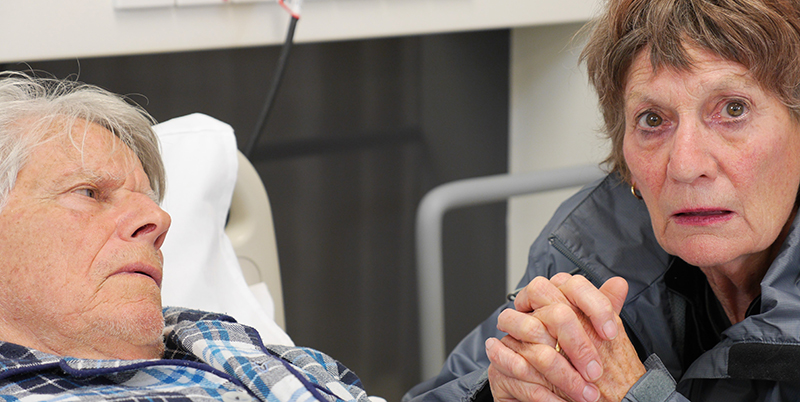End-of-life care for older people in Hospital: EOLE resources can help
3060 0
A blog post written by Deb Rawlings, Co-Investigator, End-of-Life Essentials project

Our population is aging. In the years 2020/2021 in Australia, 17% of the population were over the age of 65, an increase of 6% since 1990/1991, driven by low fertility and increasing life expectancy. [1]
What does this mean for our hospital system? It has been estimated that on average, a person between the ages of 60 and 79 will have three to four admissions to acute hospital in the last 12 months of life. [2,3] Older Australians (60-79) will also present at least once to the emergency department in the last year. [2]
A report by the Australian Institute of health and Welfare also tells us that:
- For people aged 65 and over, hospital is the most common place of death (50%)
- For people over the age of 85, Residential Aged Care (RAC) is the most common place of death (50%)
- For those living in RAC (in the week prior to death) 79% will die there
- If not admitted to a RAC (in the week prior to death) 71% die in hospital. [4]
People living with Dementia
The leading cause of death for people over 85 is Dementia, and the second leading cause of death for those between 75-84. [5] For administrators and health professionals working in hospitals what is important to note is that multiple hospital admissions among people dying with dementia are increasing, with one in four admitted to hospital every year. [6] Therefore, the likelihood of a person living with dementia being admitted to and dying in hospital is high. [7]
End-of-Life Essentials (EOLE) offers free peer-reviewed online education modules on end-of-life (EOL) care in hospitals for nurses, doctors and allied health professionals. A range of implementation tools are also available to assist a unified approach to strategies and processes which will inform EOL care. As older people will be admitted to hospital and may die there, the EOLE education modules and resources are relevant and appropriate for any health care professional looking after an older person in hospital. This may be a general practitioner admitting an older person to a rural hospital, an allied health professional seeing an older person on a medical ward, or a nurse caring for an older person in a cardiac care unit.
An EOLE fact sheet has been developed that directs readers to resources that can help improve the quality of EOL care for those older people in hospital.
Other resources are also available, for example, The Importance of Coordinating Patient Care module which considers the coordination of care within /beyond the hospital. Older Australians will often transition between settings such as RAC, Emergency Departments, home and hospital admission and being proactive in times of transitions across our health sector can ensure quality and safe end-of-life care.
References
- Australian Institute of Health and Welfare (2022) Profile of Australia’s population. AIHW, Australian Government. Accessed 2022 Oct 25.
- Australian Institute of Health and Welfare (2022) The last year of life: patterns in health service use and expenditure. AIHW, Australian Government. Accessed 2022 Oct 25.
- Bone AE et al. Factors associated with older people’s emergency department attendance towards the end of life:a systematic review. Eur. J. Public Health 2019; 29: 67-74.
- Australian Institute of Health and Welfare (2021) Interfaces between aged care and health systems in Australia – Where do older people die? AIHW, Australian Government
- Australian Institute of Health and Welfare (2021) Older Australians. Health - status and functioning. AIHW, Australian Government. Accessed 2022 Oct 25.
- Leniz et al. Primary care contact, continuity, identification of palliative care needs, and hospital use: a population-based cohort study in people dying with dementia. Br J Gen Pract 2022; 72 (722): e684-e692. DOI: https://doi.org/10.3399/BJGP.2021.0715
- Parker D, Lewis J, Gourlay K. 2018. Palliative care and dementia: Dementia Australia Paper Number 43. Dementia Australia.

Deb Rawlings, Co-Investigator, End-of-Life Essentials project